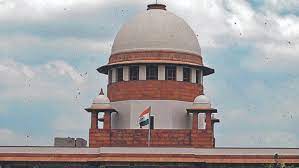Consumer Protection Act,1986, Section 2(1)(g) and 14(1)(d) – Consumer – Medical negligence – Compensation – Costs – Ethics Committee of Medical Council of India conducted an enquiry and passed an order holding Dr. R.P. Singh to be in violation of Professional Misconduct, Etiquette and Ethics Regulation, 2002 – The competent authority, i.e., the MCI vide order dated 20thApril, 2015 held the respondent guilty of medical negligence in the treatment of the appellant-complainant and affirmed the recommendation of the Ethics Committee removing his name from the Indian Medical Register for a period of six months -The appellant-complainant who is 84 years of age as on date claims to have suffered loss of vision in the left eye owing to the gross medical negligence committed by respondent in a surgical procedure which was undertaken way back in the year 2002-2003 – He has been contesting this long drawn out litigation for a rightful claim of compensation for more than 20years – The NCDRC, while accepting the revision of the appellant-complainant, reduced the interest awarded by the DCDRC from 12% to 6%, with a bald unreasoned observation that the rate of interest so applied was on the higher side and, therefore, the same was reduced to 6%. – Respondent misrepresented to the NCDRC that he had deposited an amount of Rs. 2 Lakhs only, which had been paid to the appellant-complainant P.C. Jain in the year 2011 – Specific plea of the appellant P.C. Jain that he has not received a single penny towards compensation for the loss of vision suffered by him owing to the medical negligence committed by the respondent – The review petition filed by was allowed ex-parte by the NCDRC in a totally cavalier fashion without putting the complainant to notice – Orders passed by the NCDRC modified and direct that the appellant P.C. Jain shall be entitled to receive compensation of Rs. 2 Lakhs only with interest @ 12% per annum from the respondent with effect from the date of filing of the complaint till actual payment is made – As the respondent procured the order under review dated 22nd July, 2022 by making a false representation that the amount of compensation had been paid to the appellant-complainant P.C. Jain, a cost of Rs. 50,000/- imposed upon the respondent which upon realisation, shall be paid to the appellant-complainant P.C. Jain. (Para 10 to 20)
SUPREME COURT OF INDIA
2024 STPL(Web) 65 SC
[2024 INSC 67]
P.C. Jain Vs.Dr. R.P. Singh
Civil appeal no(s). 1313-1315 of 2024 (Arising out of SLP(Civil) No(s). 683-685 of 2023) With Civil Appeal NO(S). OF 2024 (Arising out of SLP(Civil) No(s). 13511-13512 of 2023)-Decided on 29-1-2024
https://stpllaw.in/wp-content/uploads/2024/04/2024-STPLWeb-65-SC.pdf







